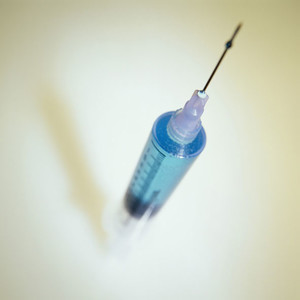The international pharmaceuticals community is watching closely as Pfizer appeals against a decision to revoke its patent on Sutent (sunitinib).
The application of international patent law in India is being questioned by challenges to patents. Although India amended its patent law in 2005 to make it fully TRIPS (trade-related aspects of intellectual property rights) compliant, the local industry is becoming increasingly defiant towards originator companies.
In September 2012, the High Court in Delhi dismissed a patent infringement case filed by Roche over Cipla’s version of its cancer drug Tarceva (erlotinib). Also in September 2012, Bayer failed in the first stage of its bid to stop Natco from selling a cheap version of its liver and kidney cancer drug Nexavar (sorafenib) in India [1].
Nevertheless Novartis is fighting back following rejection in 2006 of the company’s patent application for its leukaemia treatment Glivec (imatinib) [2]. And on 5 October 2012 Pfizer announced it would appeal against the revocation of its patent on Sutent (sunitinib).
International campaigns
The dismissal of patents has come about after some years of international campaigns against originator companies and the TRIPS laws. Médecins Sans Frontières is coordinating one such campaign at the moment, in an attempt to make newer drugs accessible to poor patients in developing countries. It makes it clear that the challenges are all based upon normal legal grounds, for example, the patent being on a new form of a drug, not a new drug.
Novartis’ 1998 Indian patent application was for the beta crystalline form of imatinib mesilate. Imatinib as a free base molecule was invented by Novartis in 1992 and patented in the US and other countries in 1993. The 1993 US patent of imatinib disclosed the salt imatinib mesilate. When it applied for the beta crystalline form of imatinib mesilate in 1998, the Chennai Patent Office ruled that it was a new form of a known substance and therefore not patentable under Section 3(d) of the Indian Patent Act.
Knowing this requirement of the Indian law, Novartis tried to demonstrate that there was indeed enhancement of efficacy and submitted data indicating enhanced bioavailability of 30% in studies conducted on rats. Bioavailability is a key parameter but there are no clear-cut or universally applicable criteria to judge to what extent alteration of bioavailability affects the efficacy of a drug. Further, results from animal studies cannot be directly extrapolated to human beings. Therefore, the Patent Controller rejected this submission and held that Novartis had failed to demonstrate the enhancement in efficacy as required under the Act.
The latest battle is over sunitinib
Pfizer is set to appeal after the authorities in India revoked the patent on the cancer drug Sutent. The treatment for liver and kidney cancer was granted a patent in India in 2007, but that decision was challenged by generics specialists Cipla and Natco Pharma. India’s Patent Board has backed them, saying that ‘the invention that is claimed in the patent does not involve any inventive step’.
Mr Jazz Tobaccowalla, Pfizer India’s Managing Director, said that ‘we believe the decision undermines intellectual property rights in India and we will vigorously defend our basic Sutent patent.’
In theory, several ‘lawful opportunities’ exist for developing countries to minimise the impact of TRIPs on access to medicines. In fact, the challenge is not being made on the grounds of access to poorer people, an approach that is controversial.
Use of the drug is nevertheless denied to many by the prohibitive price. Pfizer does have a Patient Assistance Programme but it reaches only a few. If generics competition is allowed, the price is set to tumble by at least 90% and the generics industry will make it widely available.
Related articles
India plans further cuts to drug prices
India’s patent laws coming under repeated challenges
References
1. GaBI Online - Generics and Biosimilars Initiative. Bayer loses Nexavar compulsory licence appeal [www.gabionline.net]. Mol, Belgium: Pro Pharma Communications International; [cited 2012 Nov 9]. Available from: www.gabionline.net/Generics/News/Bayer-loses-Nexavar-compulsory-licence-appeal
2. GaBI Online - Generics and Biosimilars Initiative. Novartis versus the Indian patent system [www.gabionline.net]. Mol, Belgium: Pro Pharma Communications International; [cited 2012 Nov 9]. Available from: www.gabionline.net/Biosimilars/News/Novartis-versus-the-Indian-patent-system
Permission granted to reproduce for personal and educational use only. All other reproduction, copy, retransmission or reprinting of all or part of any ‘Content’ found on this website is strictly prohibited without the prior consent of the publisher. Contact the publisher to obtain permission before redistributing.
Source: Médecins Sans Frontières, The Lancet








 0
0











Post your comment